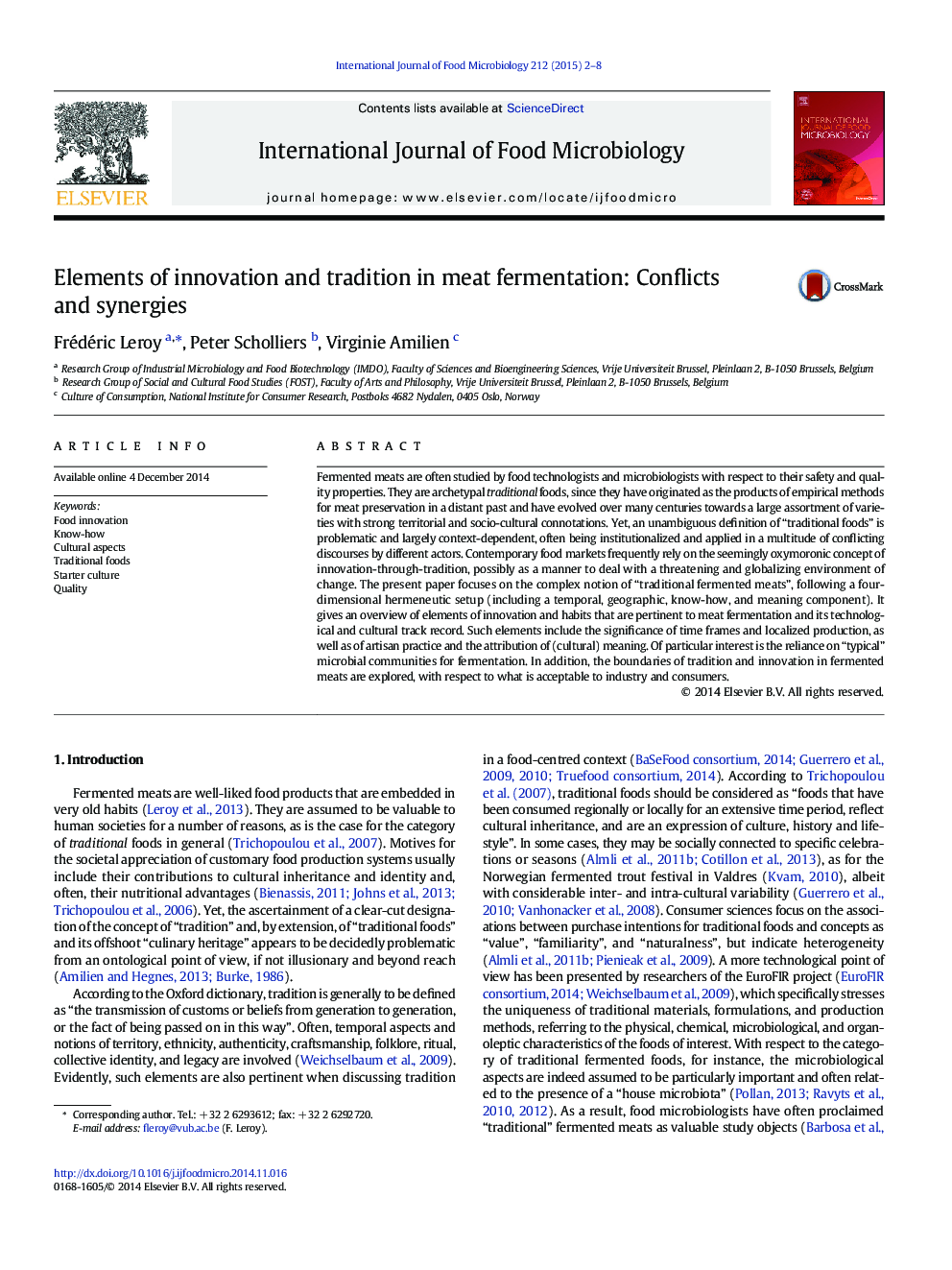| Article ID | Journal | Published Year | Pages | File Type |
|---|---|---|---|---|
| 4366441 | International Journal of Food Microbiology | 2015 | 7 Pages |
Fermented meats are often studied by food technologists and microbiologists with respect to their safety and quality properties. They are archetypal traditional foods, since they have originated as the products of empirical methods for meat preservation in a distant past and have evolved over many centuries towards a large assortment of varieties with strong territorial and socio-cultural connotations. Yet, an unambiguous definition of “traditional foods” is problematic and largely context-dependent, often being institutionalized and applied in a multitude of conflicting discourses by different actors. Contemporary food markets frequently rely on the seemingly oxymoronic concept of innovation-through-tradition, possibly as a manner to deal with a threatening and globalizing environment of change. The present paper focuses on the complex notion of “traditional fermented meats”, following a four-dimensional hermeneutic setup (including a temporal, geographic, know-how, and meaning component). It gives an overview of elements of innovation and habits that are pertinent to meat fermentation and its technological and cultural track record. Such elements include the significance of time frames and localized production, as well as of artisan practice and the attribution of (cultural) meaning. Of particular interest is the reliance on “typical” microbial communities for fermentation. In addition, the boundaries of tradition and innovation in fermented meats are explored, with respect to what is acceptable to industry and consumers.
